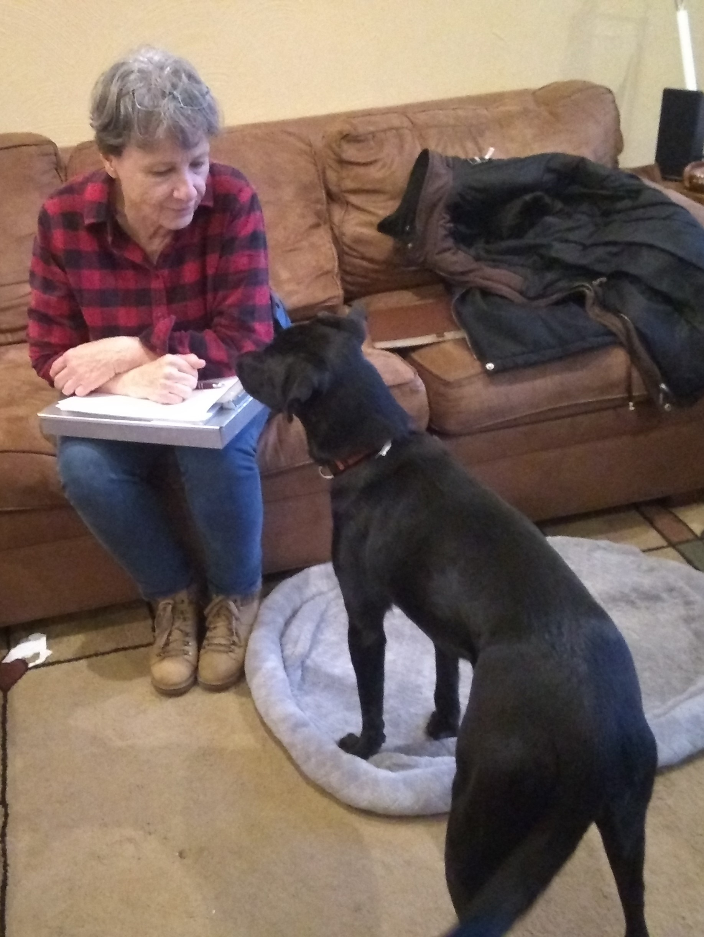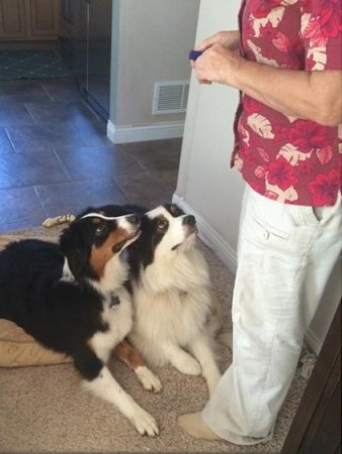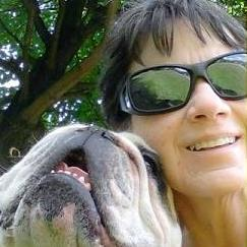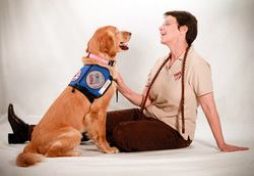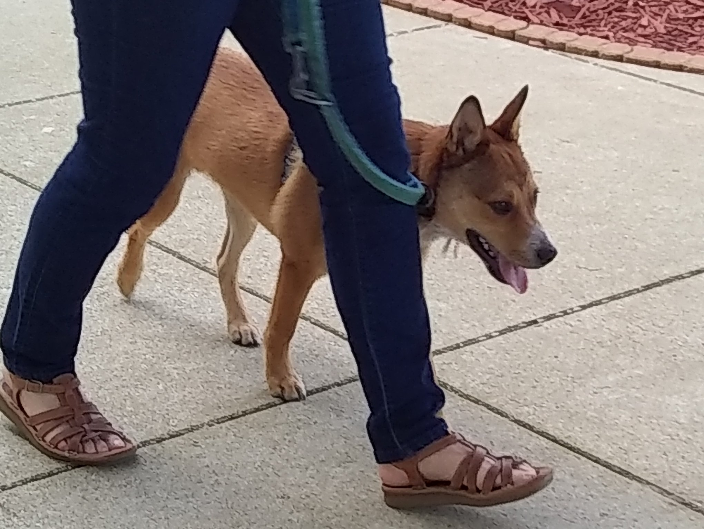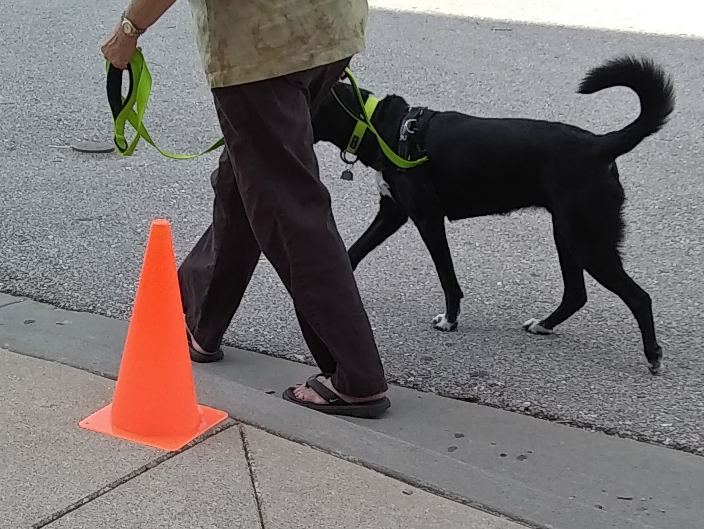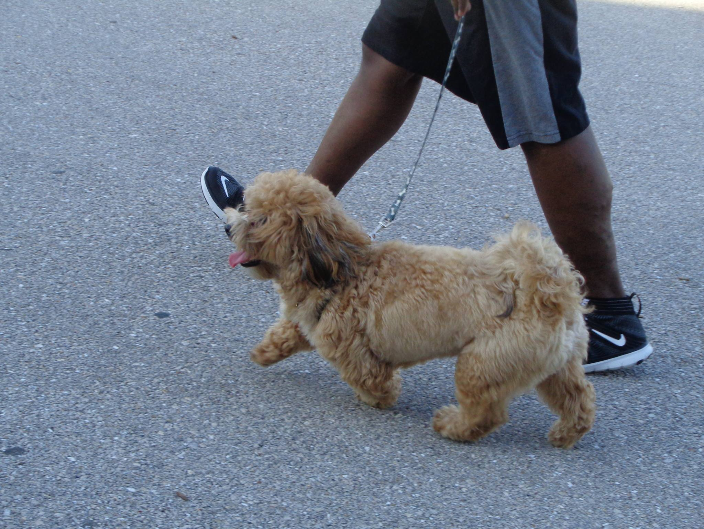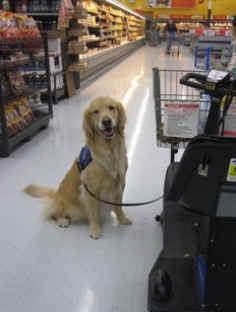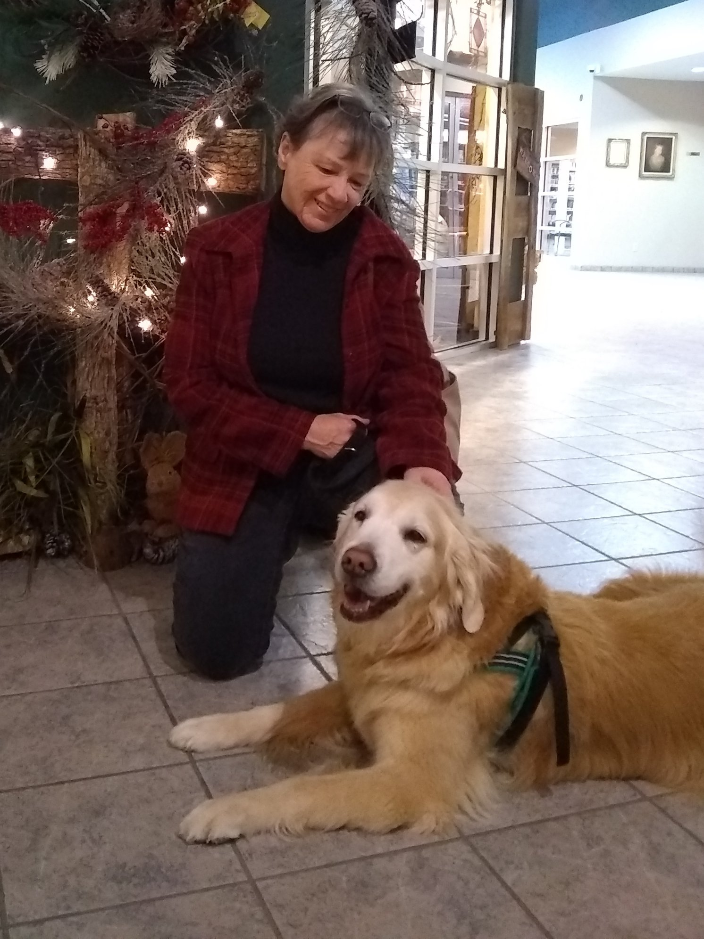Canine Connection LLC - Expert Professional Dog Training - Willard, MO
Expert professional dog training and behavior modification services using force-free best practices.
Canine Connection LLC was founded in the spring of 2009 in Dubuque, Iowa. Owner, Cindy Ludwig is a 2010 graduate, with distinction, of the world renowned Karen Pryor Academy for Animal Training & Behavior 6-month-long professional dog trainer program. She is also a Certified Professional Dog Trainer (Certification Council for Professional Dog Trainers), master's prepared professional adult educator, and licensed registered nurse. Cindy has completed advanced training and graduate level university coursework in canine behavior and behavior modification. Cindy has been training dogs professionally since 2007. Prior to 2007, she was an amateur trainer and pet owner, and has been a long time volunteer at animal shelters since the early 1990's.
- Licensed
- Certified
- Online Sessions
How do you serve precious pets?
- Dog Trainer
- Puppy Trainer
- Dog Obedience Training
- Dog Trainer
What training tools do you use?
- Back-clip Harness
- Barriers
- Clicker
- Head Collar
- Leash
- Long Line
- Martingale Collar
- Praise/Affection
- Toys
- Treats
Which training type do you employ to encourage paw-sitive behaviors?
- Pet Behavior Modification
- Dog Obedience Training
- Service Dog Training
What part of the animal kingdom do you serve?
- Dogs
What licensing do you have?
- Business License
On a scale of snail to elephant, what size animals do you work with?
- 20-39 lbs
- 40-79 lbs
- 80+ lbs
- under 20 lbs
Pet Certifications
- American Kennel Club Canine Good Citizen Approved Evaluator (AKC CGC)
- American Red Cross Pet First Aid and CPR Certified
- Certified Professional Dog Trainer (CPDT-KA)
- Karen Pryor Academy Certified Training Partner (KPA CTP)
Proud member of...
- Association of Professional Dog Trainers (APDT)
- Certification Council for Professional Dog Trainers (CCPDT)
Which part of the country do you serve pets?
All parts via virtual sessions, but physically located in the Heartland (Miissouri), specifically southwest Missouri (Springfield, MO area)
What year did you begin serving pets?
1992, volunteering in shelters; 2007, professional dog training
How did you hone your craft?
By attending and completing several different trainer programs, culminating in graduation from the esteemed Karen Pryor Academy for Animal Training & Behavior 6-month-long professional dog trainer program; apprenticing under accomplished professional trainers; attending workshops and seminars; taking college courses in canine biology and behavior; reading, watching videos by experts; and practicing with self-critique.
What tip would you give pet parents for working with animals that you've learned as a pro?
Patience with yourself and with your animal is key. Progress is not a straight line up, there will be plateaus and set-backs. Practice is essential, but it isn't the number of repetitions that counts so much as it is the thought put into each session. Keep training sessions short, and always end each session with your dog (or other animal) being successful and wanting more!
What is one thing you want pet parents to know about you? It can be whatev-fur you'd like!
In addition to the credentials listed, I have a master's degree in adult education and my teaching career spans about 50 years. I am also a registered nurse, so have an indepth understanding of physiology and behavior. I have taken a course in applied behavior analysis and use that in my work with animals as well as people. My nursing experience and graduate coursework in physiological psychology allows me to understand the physiological basis of behavior problems and the role of medication in behavior modification. I work with general practice veterinarians and veterinary behaviorists, and believe in a team approach.
cindy ludwig
SERVICE AREA: Within 100 miles, including All parts via virtual sessions, but physically located in the Heartland (Miissouri), specifically southwest Missouri (Springfield, MO area)
Distinction

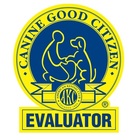
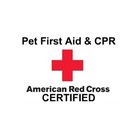
How do you serve precious pets?
- Dog Trainer
- Puppy Trainer
- Dog Obedience Training
- Dog Trainer
What training tools do you use?
- Back-clip Harness
- Barriers
- Clicker
- Head Collar
- Leash
- Long Line
- Martingale Collar
- Praise/Affection
- Toys
- Treats
Which training type do you employ to encourage paw-sitive behaviors?
- Pet Behavior Modification
- Dog Obedience Training
- Service Dog Training
What part of the animal kingdom do you serve?
- Dogs
What licensing do you have?
- Business License
On a scale of snail to elephant, what size animals do you work with?
- 20-39 lbs
- 40-79 lbs
- 80+ lbs
- under 20 lbs
Pet Certifications
- American Kennel Club Canine Good Citizen Approved Evaluator (AKC CGC)
- American Red Cross Pet First Aid and CPR Certified
- Certified Professional Dog Trainer (CPDT-KA)
- Karen Pryor Academy Certified Training Partner (KPA CTP)
Proud member of...
- Association of Professional Dog Trainers (APDT)
- Certification Council for Professional Dog Trainers (CCPDT)
Which part of the country do you serve pets?
All parts via virtual sessions, but physically located in the Heartland (Miissouri), specifically southwest Missouri (Springfield, MO area)
What year did you begin serving pets?
1992, volunteering in shelters; 2007, professional dog training
How did you hone your craft?
By attending and completing several different trainer programs, culminating in graduation from the esteemed Karen Pryor Academy for Animal Training & Behavior 6-month-long professional dog trainer program; apprenticing under accomplished professional trainers; attending workshops and seminars; taking college courses in canine biology and behavior; reading, watching videos by experts; and practicing with self-critique.
What tip would you give pet parents for working with animals that you've learned as a pro?
Patience with yourself and with your animal is key. Progress is not a straight line up, there will be plateaus and set-backs. Practice is essential, but it isn't the number of repetitions that counts so much as it is the thought put into each session. Keep training sessions short, and always end each session with your dog (or other animal) being successful and wanting more!
What is one thing you want pet parents to know about you? It can be whatev-fur you'd like!
In addition to the credentials listed, I have a master's degree in adult education and my teaching career spans about 50 years. I am also a registered nurse, so have an indepth understanding of physiology and behavior. I have taken a course in applied behavior analysis and use that in my work with animals as well as people. My nursing experience and graduate coursework in physiological psychology allows me to understand the physiological basis of behavior problems and the role of medication in behavior modification. I work with general practice veterinarians and veterinary behaviorists, and believe in a team approach.
🐾 About Cindy Ludwig – Expert Mobile Dog Trainer based in Willard, MO
Cindy is a trusted professional dog trainer in Willard, MO, dedicated to helping dogs and their families build lasting, trusting relationships. With years of hands-on experience working with dogs of all sizes...from playful puppies to seasoned seniors, Cindy Ludwig uses positive, effective, science-informed techniques to make training enjoyable, rewarding, and results-driven for you and your dog.
🏙️ Personalized Training Right at Your Home
Living in a busy urban or suburban environment can bring unique challenges for dogs - distractions, new neighbors, and varying routines. Cindy Ludwig’s canine training services bring expert guidance directly to your door, providing flexible schedules, personalized attention, and safe, fun walks and training sessions for dogs of all energy levels.
🐶 Obedience & Manners – Teaching reliable commands and respectful behavior
📏 Leash & Walking Confidence – Ending pulling, lunging, and stress during walks
🧠 Behavior Modification – Addressing fear, anxiety, reactivity, or unwanted behaviors
🐾 Puppy Foundations - Socialization and good habit development from the start
❤️ Transforming Your Dog’s Life - and Yours
Training is about more than obedience. It’s about connection, trust, and confidence. When your dog understands expectations and communicates clearly, everyday life becomes calmer and more joyful. Imagine stress-free walks, confident greetings at home, and a deeper bond built on love, patience, and understanding. Cindy Ludwig is dedicated to helping you and your dog experience this transformation.
📘 Training Tools & Techniques
Cindy Ludwig uses customized, positive methods tailored to each dog’s needs:
🎯 Clicker or reward-based reinforcement
🦴 Treats, toys, and praise for motivation
🐾 Safe harnesses and leashes for structured practice
🧠 Behavior plans focused on sustainable, long-term results
These techniques strengthen good habits, reduce problem behaviors, and make training fun for your dog.
📌 Book a Session With Cindy Ludwig Today
Ready to see lasting results with your dog? Book a virtual or mobile dog training session with Cindy Ludwig in Willard, Greene County, Springfield, Nixa, Ozark, Republic, Bolivar, Marshfield, Aurora, Carthage, Monett, Lebanon, MO at your convenience.
Whether you’re tackling basic obedience, leash issues, or more complex behavioral concerns, expert guidance is just a click away. Explore verified reviews, request quotes, and start your journey toward a happier, more harmonious life with your four-legged companion!

